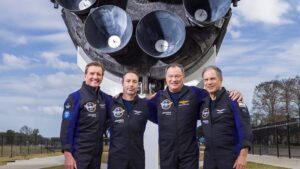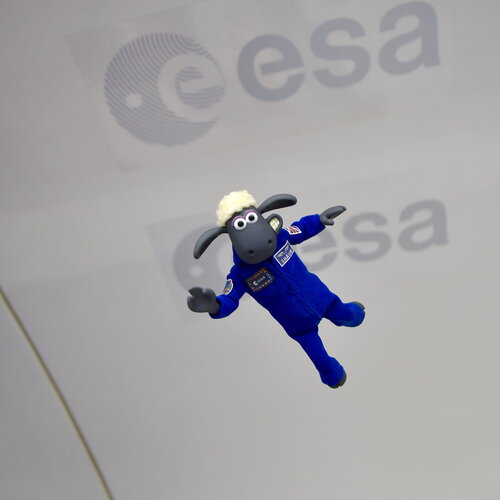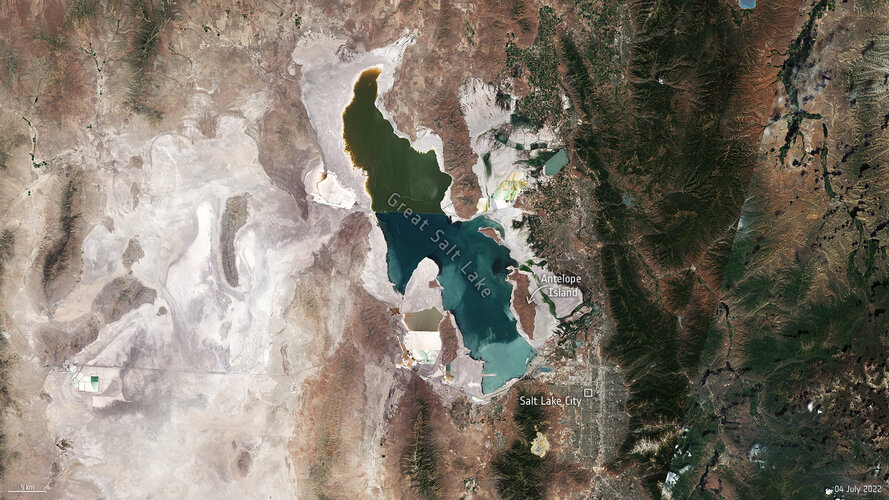Super-earth skimming habitable zone of red dwarf
Tuesday, 02 August 2022 11:32 A super-Earth planet has been found near the habitable zone of a red dwarf star only 37 light-years from the Earth. This is the first discovery by a new instrument on the Subaru Telescope and offers a chance to investigate the possibility of life on planets around nearby stars. With such a successful first result, we can expect that the Subaru Telescope will discover more, potentially even bette
A super-Earth planet has been found near the habitable zone of a red dwarf star only 37 light-years from the Earth. This is the first discovery by a new instrument on the Subaru Telescope and offers a chance to investigate the possibility of life on planets around nearby stars. With such a successful first result, we can expect that the Subaru Telescope will discover more, potentially even bette Northrop Grumman to lead Homeland Missile Defense Program for MDA
Tuesday, 02 August 2022 11:32 Northrop Grumman Corporation (NYSE: NOC) has been awarded an indefinite delivery, indefinite quantity contract with a maximum amount of $3,286,745,005 by the Missile Defense Agency (MDA) for the Ground-based Midcourse Defense (GMD) Weapon System (GWS) program.
The GWS program defends the United States against intermediate and intercontinental ballistic missile attacks. Under this competiti
Northrop Grumman Corporation (NYSE: NOC) has been awarded an indefinite delivery, indefinite quantity contract with a maximum amount of $3,286,745,005 by the Missile Defense Agency (MDA) for the Ground-based Midcourse Defense (GMD) Weapon System (GWS) program.
The GWS program defends the United States against intermediate and intercontinental ballistic missile attacks. Under this competiti Space Operations Center lifts comms performance using ViaLite HWDR links
Tuesday, 02 August 2022 11:32 ViaLite's Hyper Wide Dynamic Range (HWDR) links are providing enhanced performance at a teleport operations center in Kourou in South America. The L-Band HTS - HWDR links are being used to transfer high-speed data in LEOP (Launch and Early Orbit Phase) operations.
The industry leading links support frequencies between 400-2500 MHz while offering a Spurious-Free Dynamic Range (SFDR) of up t
ViaLite's Hyper Wide Dynamic Range (HWDR) links are providing enhanced performance at a teleport operations center in Kourou in South America. The L-Band HTS - HWDR links are being used to transfer high-speed data in LEOP (Launch and Early Orbit Phase) operations.
The industry leading links support frequencies between 400-2500 MHz while offering a Spurious-Free Dynamic Range (SFDR) of up t Modeling reveals how dwarf planet Ceres powers unexpected geologic activity
Tuesday, 02 August 2022 11:32 For a long time, our view of Ceres was fuzzy, said Scott King, a geoscientist in the Virginia Tech College of Science. A dwarf planet and the largest body found in the asteroid belt - the region between Jupiter and Mars speckled with hundreds of thousands of asteroids - Ceres had no distinguishable surface features in existing telescopic observations from Earth.
Then, in 2015, the hazy orb
For a long time, our view of Ceres was fuzzy, said Scott King, a geoscientist in the Virginia Tech College of Science. A dwarf planet and the largest body found in the asteroid belt - the region between Jupiter and Mars speckled with hundreds of thousands of asteroids - Ceres had no distinguishable surface features in existing telescopic observations from Earth.
Then, in 2015, the hazy orb Rocky road ahead still not the good kind: Sols 3548-3550
Tuesday, 02 August 2022 11:32 For this 3-sol weekend plan, I worked as the Tactical Uplink Lead. This morning we came in to discover that the drive had stopped early due to high slip on the steep terrain, and our parking place was not a safe spot to unstow and use the arm. So we quickly switched gears and loaded up the plan with lots of remote science.
This terrain is particularly beautiful, so the opportunity to take
For this 3-sol weekend plan, I worked as the Tactical Uplink Lead. This morning we came in to discover that the drive had stopped early due to high slip on the steep terrain, and our parking place was not a safe spot to unstow and use the arm. So we quickly switched gears and loaded up the plan with lots of remote science.
This terrain is particularly beautiful, so the opportunity to take Using satellite imagery to protect the environment and assist humanitarian aid
Tuesday, 02 August 2022 11:32 Every year, the Airbus Foundation delivers satellite imagery covering tens of thousands of square kilometres around the globe to support its partners involved in humanitarian aid and protecting the environment. As the number of requests continues to grow, the Foundation has significantly extended the range of products and services offered - including new types of imagery, photo interpretation an
Every year, the Airbus Foundation delivers satellite imagery covering tens of thousands of square kilometres around the globe to support its partners involved in humanitarian aid and protecting the environment. As the number of requests continues to grow, the Foundation has significantly extended the range of products and services offered - including new types of imagery, photo interpretation an Utah's Great Salt Lake is disappearing
Tuesday, 02 August 2022 11:32 Utah's Great Salt Lake dropped to its lowest recorded water level last month as a megadrought persists across the US southwest, forcing the fast-growing city to curb its water use. From space, satellite images show how water levels have fallen from 1985 to 2022 - exposing large expanses of lakebed.
According to data from the US Geological Survey, the Great Salt Lake's surface water elevati
Utah's Great Salt Lake dropped to its lowest recorded water level last month as a megadrought persists across the US southwest, forcing the fast-growing city to curb its water use. From space, satellite images show how water levels have fallen from 1985 to 2022 - exposing large expanses of lakebed.
According to data from the US Geological Survey, the Great Salt Lake's surface water elevati NASA revises requirements for ISS private astronaut missions
Tuesday, 02 August 2022 10:36
NASA is changing rules for future private astronaut missions to the International Space Station, including requiring such missions to be led by a former NASA astronaut.
The post NASA revises requirements for ISS private astronaut missions appeared first on SpaceNews.
ESA names first ‘astronaut’ to fly on the Artemis I lunar mission
Tuesday, 02 August 2022 07:27
The specially trained woolly astronaut, Shaun the Sheep, has been assigned a seat on the Artemis I mission to the Moon. Shaun’s assignment was announced by ESA’s Director for Human and Robotic Exploration Dr David Parker.
100% bio-sourced thermoset composites tested for space
Tuesday, 02 August 2022 04:19
Combining high strength with low weight, corrosion-resistant and shapeable into almost any form, composite materials are a key ingredient of modern life: employed everywhere from aviation to civil engineering, sports equipment to dentistry – and also a vital element of space missions. But they have some less desirable aspects: produced from petroleum products, they are non-renewable in nature and also non-recyclable. So ESA is working with Côte D’Azur University on a new breed of space-quality composites made from wholly sustainable sources.
December launch planned for Polaris Dawn
Monday, 01 August 2022 16:30
The privately funded Polaris Program is planning its first crewed launch on a SpaceX Crew Dragon spacecraft in December, a mission that will include the first spacewalk on a private mission.
SES closes $450 million acquisition of DRS’ satellite communications business
Monday, 01 August 2022 15:53
SES announced Aug. 1 it completed the acquisition of DRS Global Enterprise Solutions, a business acquired from Leonardo DRS for $450 million.
The post SES closes $450 million acquisition of DRS’ satellite communications business appeared first on SpaceNews.
Utah’s Great Salt Lake is disappearing
Monday, 01 August 2022 14:20
Utah’s Great Salt Lake dropped to its lowest recorded water level last month as a megadrought persists across the US southwest, forcing the fast-growing city to curb its water use. From space, satellite images show how water levels have fallen from 1985 to 2022 – exposing large expanses of lakebed.
Proposal by research team could revolutionize space medicine, improve astronaut health
Monday, 01 August 2022 14:10
Often when researching the molecular and biological changes that happen in space, models such as rodents, worms, and yeast are used to study the effects and consequences of long-duration space flight as a way to understand how microgravity impacts humans in space. However, OHIO's Nate Szewczyk, Ph.D., and several other researchers from around the world have published a paper that proposes a program for the European Space Agency that could potentially revolutionize space medicine by routinely collecting biological samples from astronauts for use with cutting-edge technologies to understand the effects on their genes, mRNA, proteins, and metabolites (commonly referred to as "omics" technologies).
The paper, titled "Routine omics collection is a golden opportunity for European human research in space and analog environments," published in the journal Patterns, details how omics profiling is primed to transform space medicine and improve occupational healthcare for astronauts. The paper's authors anticipate that omics profiling will improve astronauts' health and mitigate spaceflight risks, which could increase mission success on more ambitious endeavors such as voyages to Mars. The group of researchers go on to highlight in the paper the collaborative steps that should be taken to design a standardized data resource that can be used for years to come as data and science evolves.
NewSpace may eliminate sun-synchronous orbits
Monday, 01 August 2022 13:25 NewSpace is a recently formed movement and philosophy that encompasses a globally emerging private spaceflight industry. This term is generally used in connection with a global private sector of new aerospace companies and ventures.
One primary objective is to develop faster, better and cheaper access to space and spaceflight technologies. This movement is thought to be a major driving for
NewSpace is a recently formed movement and philosophy that encompasses a globally emerging private spaceflight industry. This term is generally used in connection with a global private sector of new aerospace companies and ventures.
One primary objective is to develop faster, better and cheaper access to space and spaceflight technologies. This movement is thought to be a major driving for 
